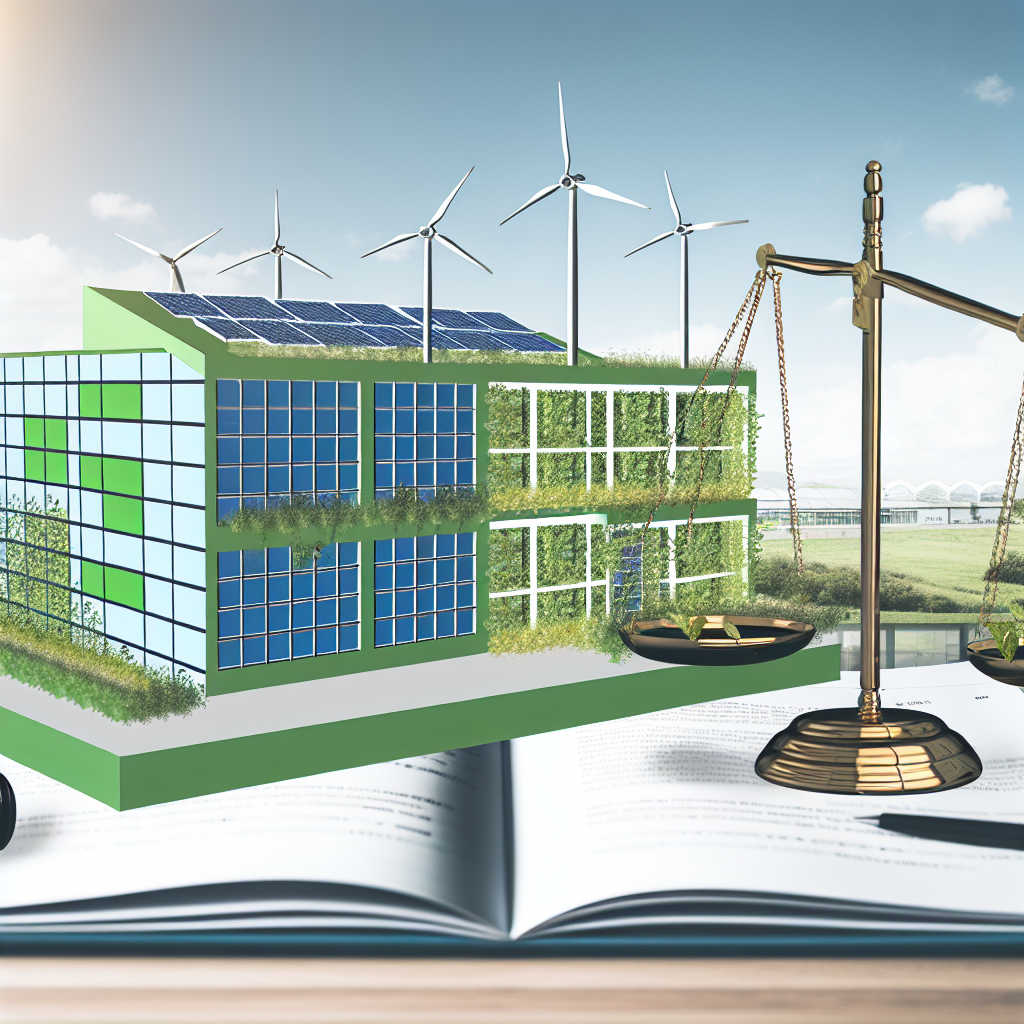
Green Building Certifications: Legal Aspects of Sustainable Construction
Green Building Certifications: Legal Aspects of Sustainable Construction
As the world increasingly prioritizes sustainability, green building certifications have become crucial in guiding the construction industry towards environmentally-friendly practices. However, the legal aspects surrounding these certifications are often overlooked. This article explores the intersection of legal compliance and green building certifications, providing insights that are beneficial for construction professionals, developers, and policymakers alike. With The Consultant Global’s extensive experience and expertise, we aim to help organizations navigate these complexities effectively.
The Importance of Green Building Certifications
Green building certifications signify that a construction project adheres to specific environmental standards. These certifications not only promote energy efficiency and reduction in carbon footprints but also enhance property value and attract eco-conscious occupants. Key certifications such as LEED, BREEAM, and the Living Building Challenge serve as benchmarks for sustainable building practices.
Legal Framework Surrounding Green Building Initiatives
Incorporating green building practices into construction projects is not merely a matter of organizational preference; it is increasingly becoming a legal requirement. Various national and local regulations mandate sustainability initiatives, impacting the way projects are designed, constructed, and operated.
- U.S. Regulations: In the United States, federal, state, and local authorities have implemented numerous regulations that incentivize or require sustainable practices. Laws related to energy efficiency, pollution control, and waste management increasingly tie into green building efforts.
- U.K. Regulations: The U.K. has established a comprehensive framework for sustainable construction through policies like the Energy Act and the Sustainable Buildings Act. These regulations provide a clear directive for builders and developers to adhere to green principles.
- UAE Practices: In the UAE, the government has launched initiatives such as the Estidama rating system and the Dubai Green Building Code, mandating compliance with specific sustainability criteria. The legal landscape is continually evolving, reflecting a commitment to environmental responsibility.
Legal Compliance in Green Building Certifications
Legal compliance is critical for obtaining and maintaining green building certifications. Non-compliance can lead to severe penalties, including fines, project delays, and loss of certification. Here are key components of legal compliance in this context:
1. Adherence to Local Laws and Regulations
Before pursuing certification, organizations must ensure they fully understand and comply with local laws regarding construction and environmental impact. This involves:
- Conducting thorough research on local building codes and regulations.
- Engaging legal experts who specialize in environmental and construction law.
- Regularly updating compliance practices to align with evolving legislation.
2. Meeting Certification Requirements
Each green building certification has specific requirements that must be met. These may include:
- Documenting the use of sustainable materials.
- Proving energy efficiency through third-party assessments.
- Establishing waste management protocols that minimize environmental impact.
3. Liability and Risk Management
When undertaking sustainable construction projects, businesses must consider potential liabilities. They should implement strategies to mitigate risks, including:
- Insurance coverage for environmental liabilities.
- Contractual agreements that clearly outline responsibilities related to compliance.
- Regular audits to ensure adherence to both legal and certification standards.
Incorporating Ethical Considerations
Legal compliance alone is not sufficient; ethical considerations also play a significant role in sustainable construction. Organizations should be proactive in evaluating the ethical implications of their practices by:
- Promoting transparency in the sourcing of materials.
- Ensuring fair labor practices and contractual obligations.
- Engaging in community-focused initiatives that encourage sustainability.
The Role of Compliance Professionals
As the regulatory environment surrounding green building evolves, the need for compliance professionals becomes paramount. These experts help businesses navigate complex legal landscapes by:
- Conducting compliance training for employees.
- Implementing monitoring systems to ensure ongoing adherence to regulations.
- Offering guidance on best practices for sustainable construction.
Global Perspectives on Green Building Legalities
While this discussion primarily focuses on U.S., U.K., and UAE laws, it’s important to recognize that legal frameworks surrounding green building practices vary significantly across the globe. Each country approaches sustainability from its unique regulatory, cultural, and economic perspectives. Businesses operating internationally must remain adaptable and informed about the specific legalities inherent in each locale.
The Consultant Global: Your Trusted Advisors
At The Consultant Global, we possess unique expertise in guiding businesses through the complex legal environment surrounding sustainable construction. Our extensive experience across various sectors allows us to assess our clients’ needs accurately and provide tailored consultancy services. We understand that every project is unique, and we pride ourselves on delivering solutions that not only meet legal requirements but also foster sustainable practices.
Our proficiency in multiple languages, including English, Turkish, Azerbaijani, Russian, and French, enables us to work effectively in multicultural environments. This linguistic diversity, combined with our commitment to inclusivity, positions us uniquely in the GCC and the UAE. We aim to forge lasting partnerships with our clients, helping them to thrive in an ever-changing global landscape.
Looking Ahead: The Future of Green Construction Regulations
As the emphasis on sustainability continues to grow, it is likely that regulatory frameworks surrounding green building certifications will tighten. Organizations must stay ahead of these changes by adopting proactive compliance strategies and foster a culture of sustainability within their operations. Emphasizing legal awareness and ethical practices will not only enhance compliance but also position businesses as leaders in the sustainable construction sector.
Conclusion
The legal aspects of sustainable construction and green building certifications are multifaceted, impacting several areas of the construction industry. Organizations must prioritize compliance with existing laws and certifications while anticipating future regulatory trends. By leveraging expertise from firms like The Consultant Global, businesses can navigate the complexities of these requirements, ensuring both legal compliance and commitment to sustainability.
We invite you to explore our consultancy services and see how we can elevate your sustainable construction initiatives. Partner with us, and let’s work together to create a greener future for all.




Leave a Reply